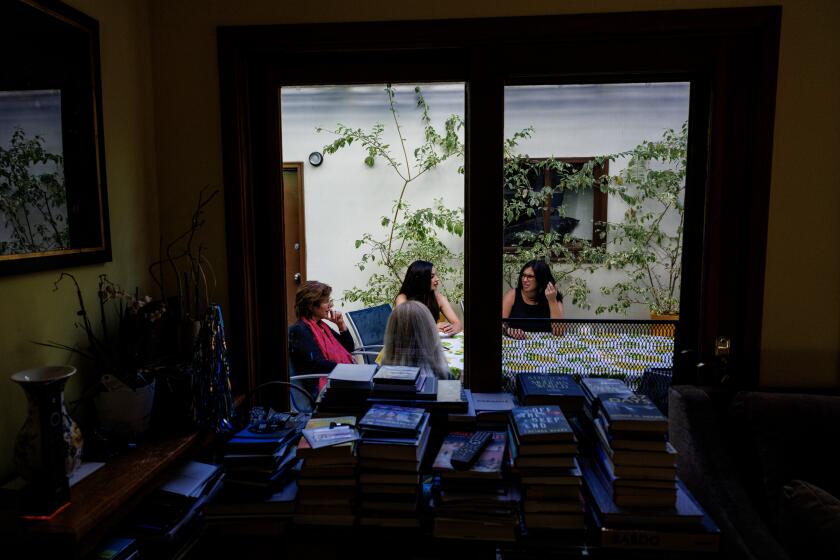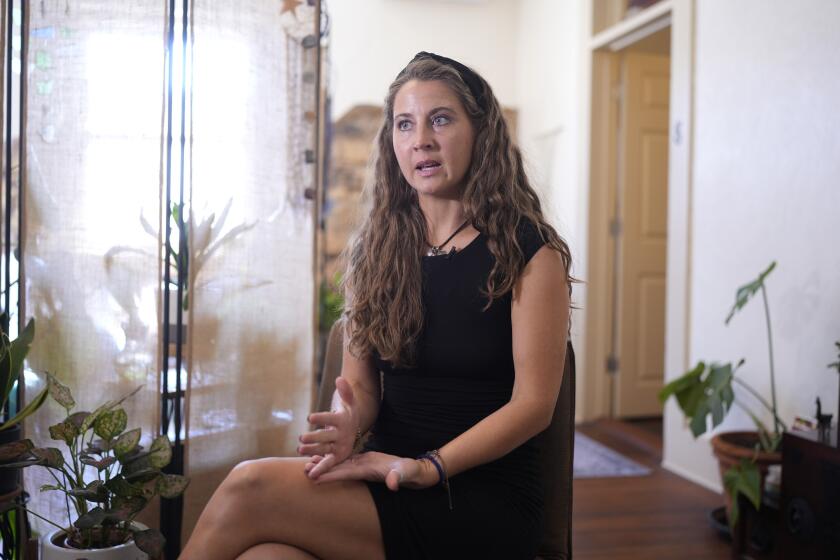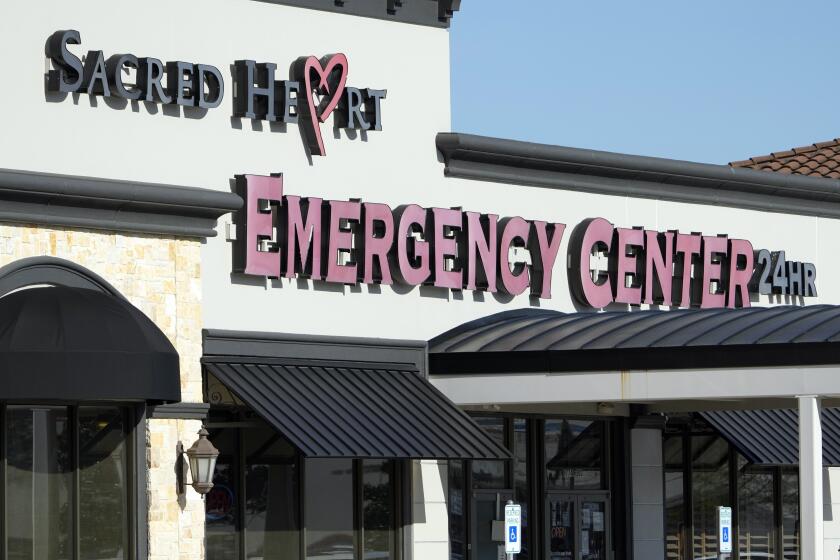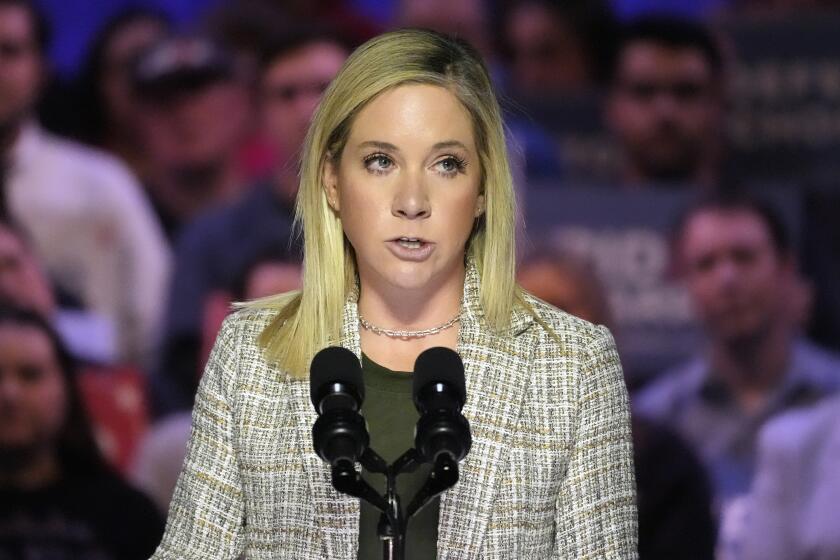‘Crisis pregnancy centers’ sue Massachusetts for campaign targeting their antiabortion practices
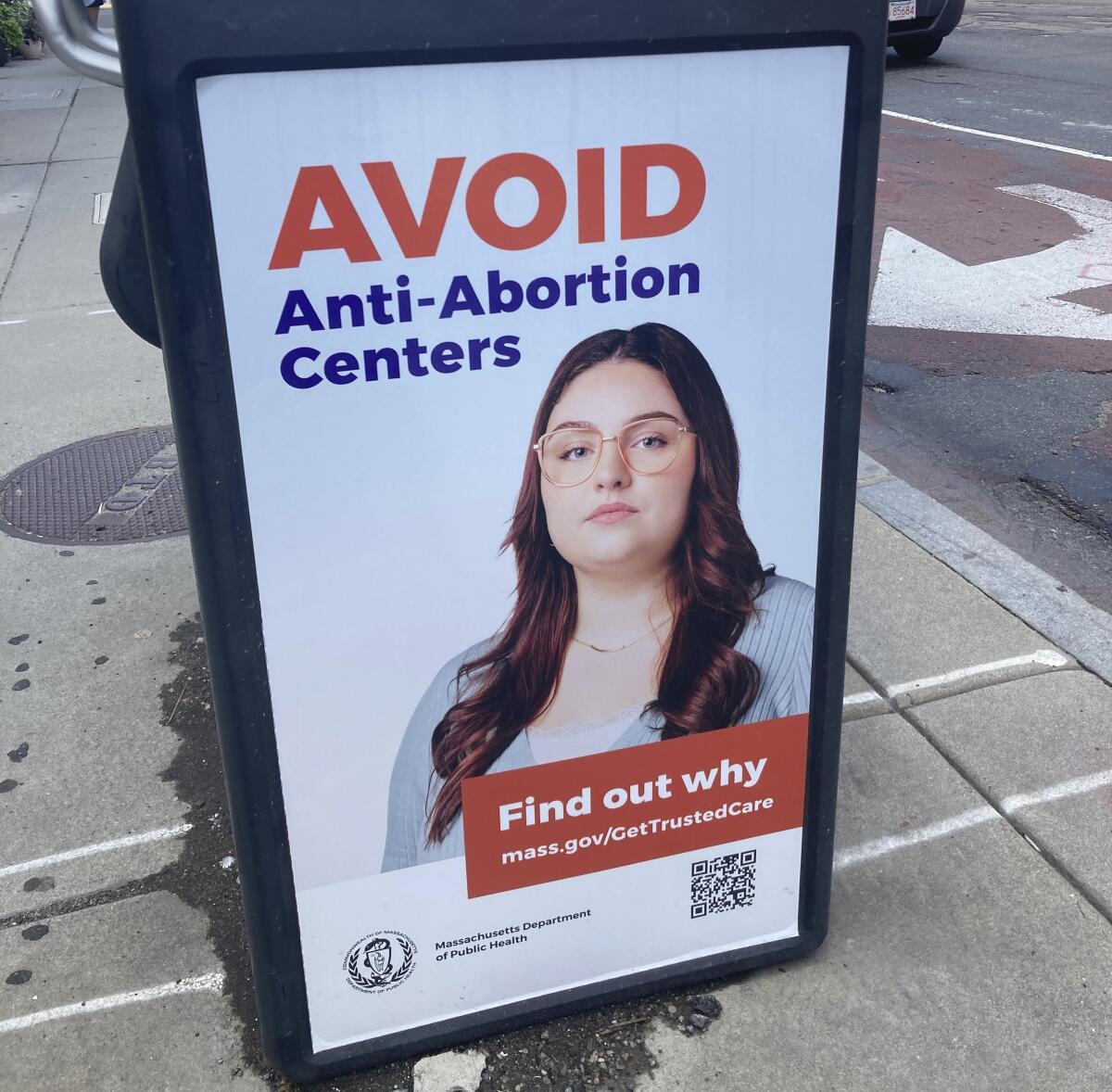
- Share via
BOSTON — A $1-million taxpayer-funded initiative in Massachusetts designed to discourage people from seeking help from “crisis pregnancy centers” — which are typically religiously affiliated and counsel clients against having abortions — has drawn a lawsuit from center operators.
The campaign launched in June by Massachusetts Gov. Maura Healey includes ads on social media, billboards, radio and buses warning people to avoid the centers, saying they’re not to be trusted for comprehensive reproductive healthcare.
Center operators are pushing back, teaming with a national conservative law firm to challenge the campaign, saying it infringes on their constitutional rights.
The Washington-based American Center for Law and Justice filed a lawsuit this month in federal court on behalf of Your Options Medical, which operates four antiabortion pregnancy clinics in the eastern part of the state.
The lawsuit names Healey; state Department of Public Health Commissioner Robert Goldstein; and Rebecca Hart Holder, executive director of the Reproductive Equity Now Foundation, a nonprofit focused on educating the public about equitable access to reproductive healthcare.
The campaign by an antiabortion group to block the opening of a specialized clinic in Beverly Hills may offer a playbook for similar efforts in other cities and states.
The suit alleges that the state initiative amounts to an unconstitutional violation of free speech and equal protection rights for those who run the pregnancy crisis centers. The plaintiffs also argue that the state is subjecting them to religious discrimination.
“This campaign involves selective law enforcement prosecution, public threats, and even a state-sponsored advertising campaign with a singular goal — to deprive YOM, and groups like it, of their First Amendment rights to voice freely their religious and political viewpoints regarding the sanctity of human life in the context of the highly controversial issue of abortion,” the lawsuit says.
The lawsuit also says the state has partnered with what center supporters call “a pro-abortion group” — the Reproductive Equity Now Foundation — to discredit and dismantle every so-called crisis pregnancy center in the state. The state’s ad campaign was created by the foundation and the state’s Department of Public Health.
Healey said the lawsuit won’t dissuade the state.
“We are going to continue to stand strong for reproductive freedom here in Massachusetts,” Healey, a Democrat and the state’s former attorney general, said this week.
More than 100 pregnant women in medical distress who sought help from emergency rooms were turned away or negligently treated since 2022.
“I’m not surprised to see another frivolous lawsuit to challenge that law. But we’re prepared for it and the lawyers will handle that,” she added.“We are about making sure that women in this state have access to the care that they and their families need.”
The Department of Public Health declined to comment. Reproductive Equity Now Foundation did not immediately respond to a request for comment.
Goldstein, the Public Health commissioner, defended the initiative when it was first announced.
“Every day, individuals in the commonwealth walk into antiabortion centers unaware that these facilities are masquerading as comprehensive medical providers and pose a significant risk to the health and well-being of those seeking help,” he said.
Since 1999, the department has licensed Your Options Medical, which owns and operates the only “pro-life mobile medical unit” in the state in addition to its brick-and-mortar clinics, according to the group’s lawyers.
There are more than 30 antiabortion pregnancy centers in the state. The Healey administration has described its effort to warn residents about them as the “first-in-the-nation public education campaign highlighting the dangers and potential harm of anti-abortion centers.”
The Biden administration is telling emergency room doctors they must perform emergency abortions when necessary to save a pregnant woman’s health.
Those harms include what the state describes as the centers implying that they offer abortion-related care without providing abortions; delaying healthcare until it’s too late for an abortion; and relying on untrained staff or volunteers who may not be required to follow codes of ethics or might not keep patient records private. The centers have called the allegations false.
State officials have set up a website to help residents access reproductive healthcare. The Reproductive Equity Now Foundation has also designed an online map of what the organization describes as “fake abortion clinics” to alert those seeking abortions.
The lawsuit asks the court to order the state and others involved in the ads to stop any public campaign that accuses YOM of misconduct or being a public safety threat.
States have reacted differently to antiabortion pregnancy clinics since the Supreme Court ended constitutional protections for abortion in 2022.
The Texas Supreme Court rejected a challenge to its restrictive abortion ban following a lawsuit by women who had serious pregnancy complications.
Lawmakers in predominantly red states have approved millions for the organizations. A West Virginia coalition that helps support a network of antiabortion pregnancy centers received $1million in tax dollars last year to distribute to groups that encourage people not to end their pregnancies.
In Democratic-leaning states, officials have tried to limit the organizations.
California sued an antiabortion group and a chain of antiabortion counseling centers last year, saying the organizations misled women when they offered them unproven treatments to reverse medication abortions.
In Illinois, lawmakers passed, and the governor signed, a new law last year to allow the state to penalize antiabortion counseling centers if they use deception to interfere with clients seeking the procedure.
U.S. District Judge Iain Johnston quickly blocked that law, describing it as “painfully and blatantly a violation of the First Amendment.”
LeBlanc writes for the Associated Press.
More to Read
Sign up for Essential California
The most important California stories and recommendations in your inbox every morning.
You may occasionally receive promotional content from the Los Angeles Times.
